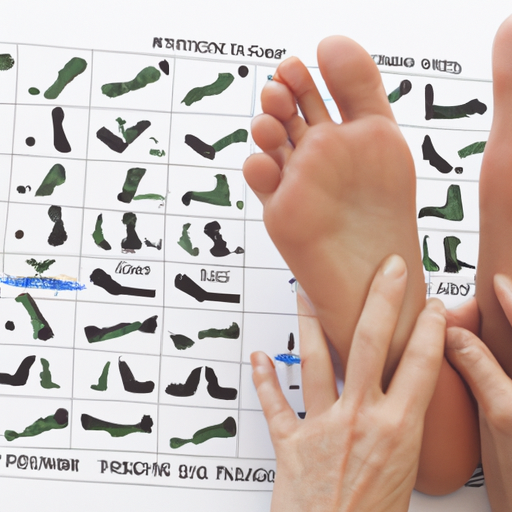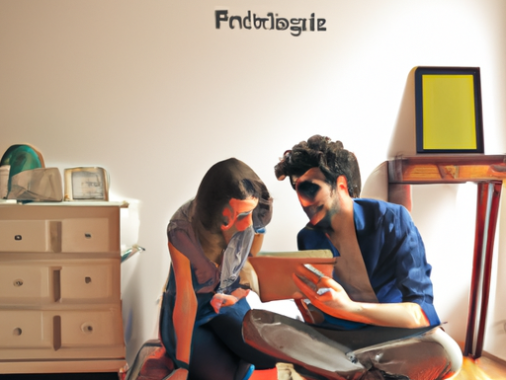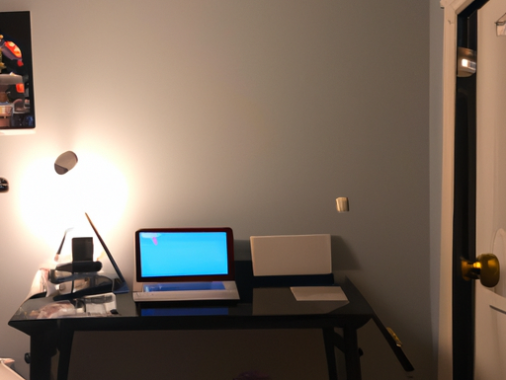-
Table of Contents
- Introduction
- What is Reflexology and How Does it Work?
- What is the Evidence for the Accuracy of Reflexology?
- How Can Reflexology Help with Stress and Anxiety?
- What are the Benefits of Reflexology?
- What are the Risks of Reflexology?
- How Can You Find a Qualified Reflexologist?
- What is the Difference Between Reflexology and Acupuncture?
- Q&A
- Conclusion
Introduction
Reflexology is an ancient healing practice that has been used for centuries to promote relaxation and wellbeing. It is based on the idea that certain areas of the body are connected to other areas of the body through energy pathways. By applying pressure to these areas, reflexologists believe they can help to restore balance and promote healing. But how accurate is reflexology? This article will explore the evidence behind reflexology and discuss its potential benefits.
What is Reflexology and How Does it Work?
Reflexology is an alternative medical practice that involves applying pressure to specific points on the feet, hands, and ears. It is based on the belief that these points correspond to different organs and systems in the body. By applying pressure to these points, reflexologists believe that they can help to reduce stress, improve circulation, and promote relaxation.
Reflexology is based on the idea that the body is divided into zones, with each zone corresponding to a different organ or system. For example, the toes are believed to correspond to the head and neck, while the heel corresponds to the lower back and hips. By applying pressure to these points, reflexologists believe that they can help to stimulate the body’s natural healing processes.
Reflexology is believed to work by stimulating the body’s nervous system. When pressure is applied to a specific point, it is thought to send a signal to the brain, which then sends a signal to the corresponding organ or system. This signal is believed to help the body to relax and heal itself.
Reflexology is a safe and non-invasive practice that can be used to help reduce stress, improve circulation, and promote relaxation. It is important to note, however, that reflexology is not a substitute for medical care and should not be used to diagnose or treat any medical condition. If you are considering trying reflexology, it is important to consult with your doctor first.
What is the Evidence for the Accuracy of Reflexology?
Reflexology is a form of alternative medicine that involves applying pressure to specific points on the feet, hands, and ears. It is believed to be a form of healing that can help to reduce stress, improve circulation, and promote relaxation. While there is no scientific evidence to support the efficacy of reflexology, many people believe that it can be beneficial for a variety of health conditions.
The evidence for the accuracy of reflexology is largely anecdotal. Many people report feeling relaxed and having improved health after receiving reflexology treatments. However, there have been few scientific studies conducted to evaluate the effectiveness of reflexology.
One study, published in the journal Complementary Therapies in Medicine, found that reflexology was associated with a reduction in pain and improved quality of life in patients with chronic pain. Another study, published in the journal Evidence-Based Complementary and Alternative Medicine, found that reflexology was associated with improved sleep quality and reduced stress in patients with insomnia.
In addition, some studies have suggested that reflexology may be beneficial for certain medical conditions, such as headaches, menstrual cramps, and digestive issues. However, more research is needed to confirm these findings.
Overall, the evidence for the accuracy of reflexology is limited. While some people may find it beneficial, it is important to remember that reflexology is not a substitute for medical care. If you are considering trying reflexology, it is important to speak to your doctor first to ensure that it is safe for you.
How Can Reflexology Help with Stress and Anxiety?
Reflexology is a holistic healing practice that has been used for centuries to promote relaxation and reduce stress and anxiety. It is based on the idea that certain areas of the feet, hands, and ears correspond to different organs and systems in the body. By applying pressure to these areas, reflexologists can help to reduce stress and anxiety by stimulating the body’s natural healing processes.
Reflexology works by stimulating the body’s nervous system, which helps to reduce stress and anxiety. When pressure is applied to the reflex points, it sends signals to the brain that can help to relax the body and reduce tension. This can help to reduce the physical symptoms of stress and anxiety, such as headaches, muscle tension, and fatigue.
Reflexology can also help to reduce emotional stress and anxiety by promoting relaxation and calming the mind. By stimulating the body’s natural healing processes, reflexology can help to reduce feelings of worry, fear, and depression. It can also help to improve sleep quality, which can help to reduce stress and anxiety.
Reflexology is a safe and natural way to reduce stress and anxiety. It is a non-invasive therapy that does not require any medications or special equipment. It is also a relatively inexpensive therapy that can be done in the comfort of your own home.
Reflexology can be a great way to reduce stress and anxiety. It is a safe and natural therapy that can help to reduce physical and emotional symptoms of stress and anxiety. It can also help to improve sleep quality and promote relaxation. If you are looking for a natural way to reduce stress and anxiety, reflexology may be a great option for you.
What are the Benefits of Reflexology?
Reflexology is a holistic healing practice that has been used for centuries to promote relaxation and improve overall health. It is based on the idea that certain areas of the feet, hands, and ears correspond to different organs and systems of the body. By applying pressure to these areas, reflexologists can help to reduce stress, improve circulation, and promote healing.
The benefits of reflexology are numerous. It can help to reduce stress and anxiety, improve sleep, and boost the immune system. It can also help to reduce pain, improve circulation, and promote relaxation. Reflexology can also help to improve digestion, reduce fatigue, and improve overall energy levels.
Reflexology can also help to improve mental clarity and focus. It can help to reduce tension headaches, improve concentration, and reduce mental fatigue. It can also help to reduce the symptoms of depression and anxiety.
Reflexology can also help to improve the body’s natural healing process. It can help to reduce inflammation, improve lymphatic drainage, and promote healing of injuries. It can also help to reduce the symptoms of chronic conditions such as arthritis, fibromyalgia, and chronic fatigue syndrome.
Finally, reflexology can help to improve overall wellbeing. It can help to reduce stress, improve mood, and promote a sense of balance and harmony. It can also help to improve self-esteem and confidence.
Overall, reflexology is a safe and effective way to promote relaxation, reduce stress, and improve overall health. It can help to reduce pain, improve circulation, and promote healing. It can also help to improve mental clarity and focus, reduce tension headaches, and improve overall wellbeing.
What are the Risks of Reflexology?
Reflexology is a form of alternative medicine that involves applying pressure to specific areas of the feet, hands, and ears. It is believed to be a safe and effective form of treatment for a variety of conditions. However, there are some risks associated with reflexology that should be considered before undergoing treatment.
The most common risk associated with reflexology is the potential for injury. If the practitioner applies too much pressure, it can cause bruising, swelling, or even nerve damage. It is important to communicate with the practitioner about the amount of pressure that is comfortable for you.
Another risk associated with reflexology is the potential for infection. If the practitioner does not use proper hygiene techniques, such as washing their hands and using clean instruments, there is a risk of infection. It is important to make sure the practitioner is using proper hygiene techniques before undergoing treatment.
Finally, reflexology may not be suitable for everyone. People with certain medical conditions, such as diabetes, should consult their doctor before undergoing reflexology. Additionally, pregnant women should not undergo reflexology as it may cause contractions.
Overall, reflexology is generally considered to be a safe and effective form of treatment. However, it is important to be aware of the potential risks associated with reflexology before undergoing treatment. It is also important to communicate with the practitioner about the amount of pressure that is comfortable for you and to make sure they are using proper hygiene techniques.
How Can You Find a Qualified Reflexologist?
Finding a qualified reflexologist can be a daunting task. It is important to ensure that the reflexologist you choose is properly trained and certified. Here are some tips to help you find a qualified reflexologist:
1. Ask for referrals. Ask your friends, family, and healthcare providers for referrals to qualified reflexologists.
2. Check credentials. Make sure the reflexologist you are considering is certified by a reputable organization.
3. Research the reflexologist. Look for reviews online and read up on the reflexologist’s experience and qualifications.
4. Ask questions. When you meet with the reflexologist, ask questions about their experience and qualifications.
5. Check references. Ask the reflexologist for references from past clients.
By following these tips, you can ensure that you find a qualified reflexologist who is properly trained and certified.
What is the Difference Between Reflexology and Acupuncture?
Reflexology and acupuncture are two distinct forms of alternative medicine that have been used for centuries to treat a variety of ailments. While both practices involve the stimulation of specific points on the body, there are some key differences between the two.
Reflexology is a form of massage therapy that focuses on the feet and hands. It is based on the belief that certain areas of the feet and hands correspond to different organs and systems in the body. By applying pressure to these areas, reflexologists aim to reduce stress and improve overall health.
Acupuncture, on the other hand, is a form of traditional Chinese medicine that involves the insertion of thin needles into specific points on the body. It is believed that these points are connected to the body’s energy pathways, and that stimulating them can help to restore balance and promote healing.
The main difference between reflexology and acupuncture is the type of stimulation used. Reflexology uses massage and pressure, while acupuncture uses needles. Additionally, reflexology is typically used to treat stress and tension, while acupuncture is used to treat a variety of physical and mental health issues.
Q&A
1. How accurate is reflexology?
Reflexology is a holistic therapy that is based on the belief that certain areas of the body are connected to other areas and organs. While there is no scientific evidence to support the accuracy of reflexology, many people report feeling relief from their symptoms after receiving a reflexology treatment.
2. Is reflexology a reliable form of treatment?
Reflexology is not a substitute for medical care, but it can be used as a complementary therapy to help reduce stress and improve overall wellbeing. While there is no scientific evidence to support the accuracy of reflexology, many people report feeling relief from their symptoms after receiving a reflexology treatment.
3. What are the benefits of reflexology?
Reflexology is believed to help reduce stress, improve circulation, and promote relaxation. It is also thought to help reduce pain, improve sleep, and boost the immune system.
4. Is reflexology safe?
Yes, reflexology is generally considered safe. However, it is important to consult with your doctor before beginning any new treatment.
5. How long does a reflexology session last?
A reflexology session typically lasts between 30 and 60 minutes.
6. How often should I receive reflexology treatments?
The frequency of reflexology treatments depends on the individual and their needs. Some people may benefit from weekly treatments, while others may only need a few treatments per year.
7. Does reflexology have any side effects?
Generally, reflexology is considered safe and has no known side effects. However, it is important to consult with your doctor before beginning any new treatment.
Conclusion
In conclusion, reflexology is a holistic practice that has been used for centuries to promote relaxation and healing. While there is no scientific evidence to support its efficacy, many people report positive results from reflexology treatments. Ultimately, the accuracy of reflexology is subjective and depends on the individual’s experience.




